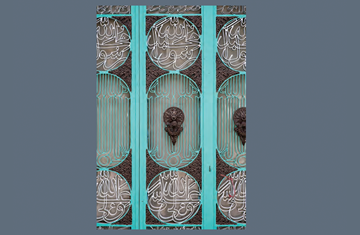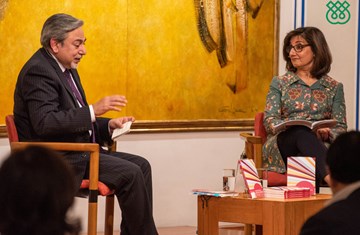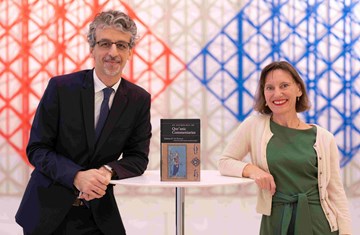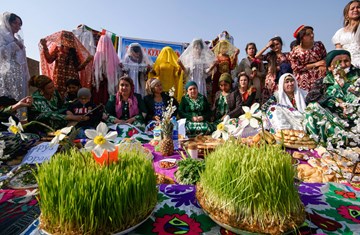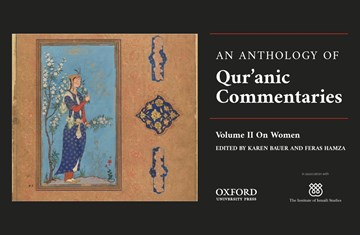IIS launches A Modern History of the Ismailis in UK and Canada
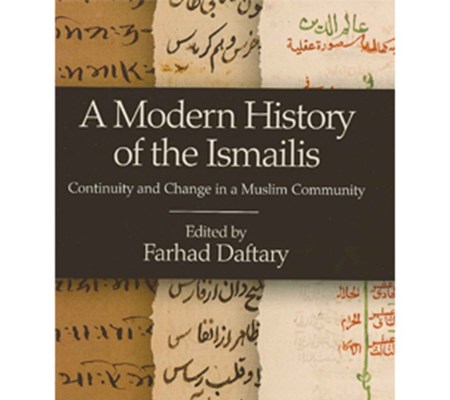
The IIS hosted launch events for its new publication, A Modern History of the Ismailis: Continuity and Change in a Muslim Community edited by Dr Farhad Daftary in London and Toronto. The book is the first of its kind, presenting research on the modern history of the Ismailis.
Organised in four sections, the first entitled Nizari Ismailis: Syria, Central Asia and China, contains essays on the Nizari Ismailis in these regions while the second, which covers the Nizari Ismailis in South Asia and East Africa, contains essays on a diverse range of subjects from the modernisation of education, to the socio-legal formation of the Nizari Ismailis from 1800-1950 CE.
Taking a wider view of the contemporary policies, institutions, and perspectives of Nizari Ismailis, the third section looks specifically at the AKDN and the modernising policies of His Highness the Aga Khan and his grandfather, Sir Sultan Mahomed Shah Aga Khan III. In addition to the Nizari Ismailis, the final section of the publication focuses on the modern history of Tayyibi Musta‘lian Ismailis.
The contributors include internationally renowned academics and noted researchers, both from the IIS and abroad, such as Prof. Ali Asani, Dr Tahera Qutbuddin, Stefano Bianca and Dr Shiraz Thobani. The launch event in London took place at the Ismaili Centre. Dr Farhad Daftary, Hakim Elnazarov and Amier Saidula participated in an on-stage discussion hosted by Asif Alidina.
The discussions provided an opportunity for Dr Daftary to discuss the rationale behind the publication, contextualising its content within the Institute’s current work in Shi‘i and Ismaili studies. In particular, Dr Daftary noted that the book contains hitherto unpublished research on the various Ismaili communities, drawing on their oral traditions and community documents as well as field research. Hakim Elnazarov and Amier Saidula also discussed their contributions, which present a picture of the Nizari Ismailis of Central Asia and China, respectively.
Hakim Elnazarov, Coordinator of the Institute’s Central Asian Studies unit, spoke of the diverse ethnic and linguistic features of the Ismailis in an area that has always, in a broad historical and cultural sense, exhibited intellectual dynamism and cultural pluralism. His research, which was conducted in conjunction with Sultonbek Aksakolov, provides a historical perspective on the origins of the Ismailis in Central Asia and draws on rare archival and primary data to present the general trends and issues in the community’s modern history, from the end of the 19th until the beginning of the 21st century.
Amier Saidula’s research and contribution focus on the Nizari Ismailis of the Xinjiang province in China. In his chapter, Amier Saidula looks at the origins of the community in the region. With their origins in the Central Asian tradition, little is known of the Ismailis of China, who have received very little attention in modern scholarship to date. The launch event in London provided a fascinating insight into the community’s history and traditions as well as the community’s current socio-political status and structure.
The launch event in Toronto provided an opportunity for Professors Karim H. Karim, Ali Asani and Zulfikar Hirji to discuss their contributions to the book. Prof. Karim H. Karim’s contribution, entitled At the Interstices of Tradition, Modernity and Postmodernity: Ismaili Engagements with Contemporary Canadian Society, explores the Canadian Ismaili community’s relationship and engagement with modernity. Highlighting the challenges faced by religious communities in the diaspora, he examines how the community in Canada is an interesting case study for a community that has come to be seen as refracted through the ‘prisms of tradition, modernity and postmodernity’. In this regard, Prof. Karim speaks of the dialectic between tradition and modernity as a dialogue rather than a point of conflict.
Prof. Ali Asani explores the fluidity of religious communities in South Asia and the evolution of the Khoja identity and culture. Looking at the pre-colonial, colonial and post-colonial periods, Prof. Asani examines the points at which various South Asian cultures and religious traditions overlapped and merged early on to give birth to the cultural and religious groupings we see today.
Prof. Zulfikar Hirji’s contribution examines the Nizari Ismailis of East Africa from the time of their migration early in the 19th century from the Indian subcontinent to the shores of various parts of Africa, including Tanzania, Uganda and Kenya, until the mid-20th century. Utilising the lens of socio-legal formation, Prof. Hirji illustrates how the Ismaili model of community governance in East Africa developed in response to the changing socio-legal arrangements in the British Empire and in accordance with the role of the Ismaili Imamat.
The launch events in Canada and the United Kingdom provided a unique insight into the Ismaili community’s development during the modern period, reflecting the wide scope and intrinsic depth of research contained in the Modern History of the Ismailis.

